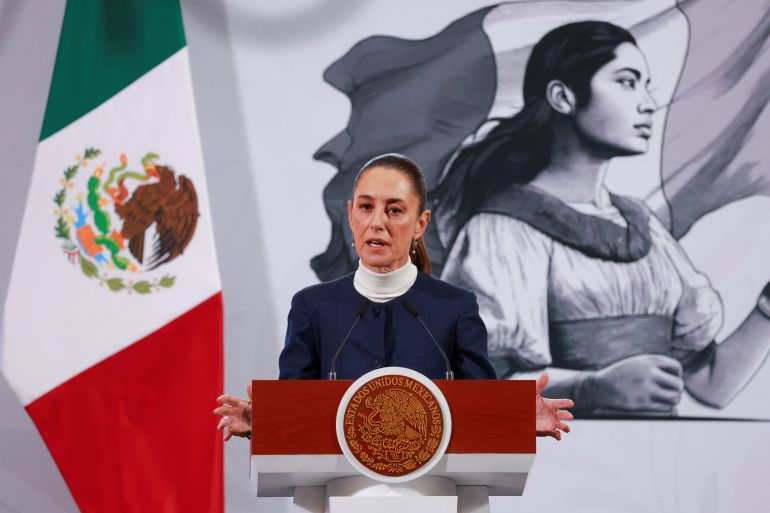Juan Alvarado has been running a small shoe manufacturing business in León, Guanajuato, Mexico’s shoe production hub, for over 15 years. However, ongoing trade and political tensions between the US and Mexico, along with disruptions caused by tariffs, are pushing him to consider diversifying into other industries or potentially closing his business.
Alvarado told Al Jazeera that he would typically employ up to 25 people, but he’s had to cut that down to 15 now. “You’re against a wall and you can’t hold on either way. And it all depends on investment,” News.Az reports.
Mexico’s tariff rate is being negotiated, after President Claudia Sheinbaum and United States President Donald Trump agreed to a 90-day extension, which is set to expire on October 31. Mexico continues to face a 25 percent tariff on cars and a 50 percent tariff on steel, aluminium, and copper, and 25 percent on anything not covered under the 2020 free trade US-Mexico-Canada Agreement (USMCA).
For Mexican industries like footwear, which has faced declining competitiveness against Asian countries for decades, the tariffs the US has imposed on other nations are seen as an advantage for gaining a stronger foothold with Mexico’s top trading partner.
Juan Carlos Cashat Usabiaga, president of the Chamber of the Footwear Industry of the State of Guanajuato (CICEG), is aware of the volatility US tariffs bring to business, but says that, for now, Mexico is being favoured since some of its exports are covered by USMCA.
“I truly believe these tariffs being imposed on other countries are actually an advantage,” he told Al Jazeera. “Speaking exclusively of footwear, you can still export to the United States while complying with the USMCA rules. That is, if you comply, you have zero percent tariffs. So this really makes our country very competitive compared to other nations that face tariffs of 20, 30, 40, or 50 percent.”
Trump’s tariffs, aimed at boosting US domestic industry, have created ripple effects. While some in Mexico see these disruptions as a window of opportunity, small business owners like Alvarado say that the current geopolitical landscape and inflation are endangering their investments.
Alvarado’s business used to manufacture shoes for a company that exports to the US. However, despite USMCA, demand has dropped on account of tariff uncertainty, causing the company to halt all orders from Alvarado.
“Production is currently halted. They were making 7,000 pair of shoes” [per week], of which Alvarado was supplying around 2,000 pairs, he said. “That was truly helping my business. [But] now they are making 800, 700 pairs.”
Apart from manufacturing for larger companies, Alvarado, in recent years, had also been growing a new sales channel by mailing shoes directly to US customers. This also stopped after Mexico suspended package shipments in the wake of the US government’s decision to end the “de minimis” exemption that allowed packages worth less than $800 to enter the US tariff-free.
